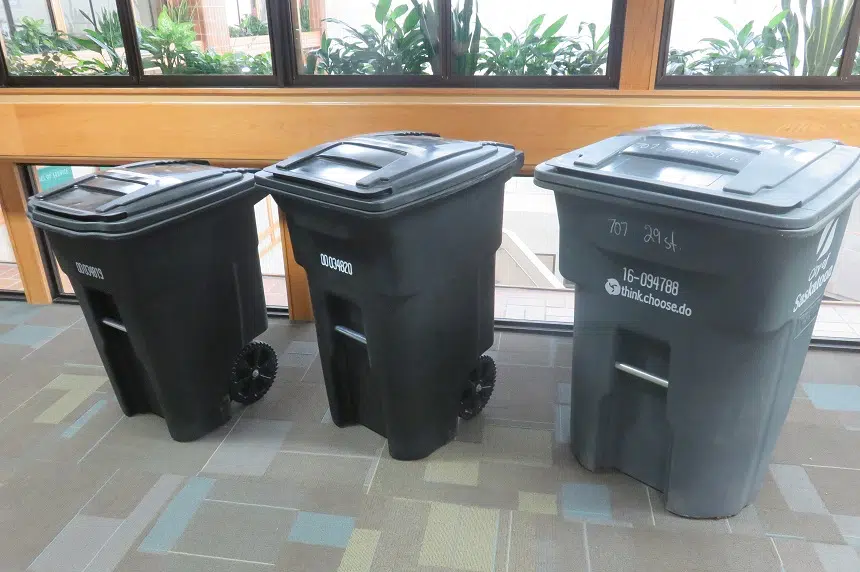Big changes are coming to the way Saskatoon homeowners pay for curbside waste collection, after city council narrowly approved a garbage utility program Monday afternoon.
The 6-5 vote green lights city administration to move forward with setting up a program where residents will be charged a monthly bill based on the size of their garbage bin, though the exact fees haven’t been determined.
Mayor Charlie Clark supported the utility model along with city councillors Darren Hill, Hilary Gough, Sarina Gersher, Cynthia Block and Mairin Loewen.
The utility funding model had been debated for months on the council floor, as the city grappled with how to close a multi-million dollar funding gap in waste management services while also encouraging a higher waste diversion rate.
“We’ve been drawing on reserves for years to pay for garbage in this city, and the reserves were running dry,” Coun. Loewen said.
“This was a matter of either funding garbage through a utility model or facing a very substantial property tax increase to achieve that same level of service.”
Saskatoon ranks near the bottom among Canadian cities with only 23 per cent of waste being diverted away from the landfill in 2017. The city has a goal to increase that rate to 70 per cent by 2023.
Councillors also voted 7-4 in favour of funding a new curbside organics collection program through property taxes, offsetting any tax savings homeowners would have received by shifting garbage off of that funding model.
They had originally endorsed moving towards mandatory organics collection at October’s council meeting.
City administration suggested the introduction of green bin organics collection would dramatically increase waste diversion rates, with about 58 per cent of current black bin contents able to be placed in the green bins — including food waste and yard clippings.
Previous reports to council have suggested the new black bin program would provide three cart size options to residents, with increasing prices for larger bins.
The reports used the current bin, sized at 320 litres, as the largest bin in the new program. The smallest bin was half that size, at 160 litres.
Coun. Ann Iwanchuk, who opposed the utility program, said she didn’t think punishing people for throwing out more was the answer.
“Fair is not charging people three, four or five times what they would pay on property taxes,” she said.
“Whether it’s called property tax or utility it’s still extra money that’s being charged by the city to our citizens.”
Randy Donauer, Zach Jeffries, Bev Dubois and Troy Davies also voted against the program.
Details on how much each bin size would cost residents, and how much the programs will cost the city, are expected in a report in early 2019.
However, a chart provided by the city suggested the costs would range between $6 a month for the smallest bin and $11 for the largest.
The new waste utility and curbside organics program would be implemented in 2020.











